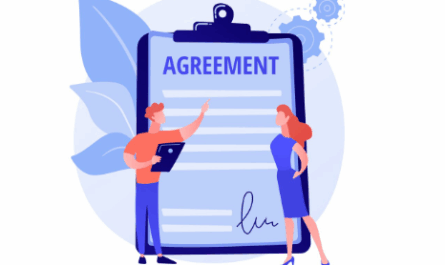When it comes to borrowing money, understanding the different types of loans available can be overwhelming. Among the various loan options, a non-recourse loan stands out for its unique features and benefits. In this comprehensive guide, we will delve into the meaning of a non-recourse loan, its advantages, and how it compares to other types of loans. Additionally, we’ll provide insights into personal loans offered by Airtel Finance.
What is a Non-Recourse Loan?
First, let’s start by understanding the meaning of non-recourse loan. A non-recourse loan is a type of secured loan where the lender’s recovery is limited to the collateral used to secure the loan. In simpler terms, if the borrower defaults on the loan, the lender can only seize the collateral and has no claim on the borrower’s other assets. This characteristic makes non-recourse loans particularly appealing to borrowers who want to limit their financial risk.
Also Read: What Is a Charge Off & How To Deal With It?
Key Features of Non-Recourse Loans
Limited Liability
The primary feature of a non-recourse loan is the limited liability it offers. Unlike recourse loans, where the lender can pursue the borrower’s other assets if the collateral does not cover the outstanding debt, non-recourse loans protect the borrower from such scenarios. This means that if the collateral’s value drops, the borrower is not personally liable for the difference.
Higher Interest Rates
Non-recourse loans typically come with higher interest rates compared to recourse loans. This is because the lender assumes a higher level of risk, as they cannot pursue additional assets beyond the collateral to recover the debt. The higher interest rate compensates for this increased risk.
Common in Real Estate and Project Financing
Non-recourse loans are commonly used in real estate and project financing. These loans are ideal for large-scale projects such as commercial real estate, infrastructure development, and energy projects. The collateral in these cases is usually the project itself or the property being financed.

Advantages of Non-Recourse Loans
Risk Mitigation
One of the significant advantages of non-recourse loans is risk mitigation. Borrowers can undertake large projects without the fear of losing personal assets if the project fails. This encourages investment in high-risk, high-reward ventures.
Attracting Investors
Non-recourse loans can attract investors who are wary of personal liability. Knowing that their other assets are protected can provide peace of mind and encourage investment in potentially lucrative projects.
Simplified Debt Resolution
In the event of default, the debt resolution process is simplified. The lender takes possession of the collateral, and the borrower is freed from further obligations. This can lead to quicker and less contentious settlements.
Also Read: Student Loans based on GPA or grades?
Comparing Non-Recourse Loans to Recourse Loans
Liability
The most significant difference between non-recourse and recourse loans is liability. In a recourse loan, the lender can pursue the borrower’s other assets if the collateral is insufficient to cover the loan. In contrast, a non-recourse loan limits the lender’s recovery to the collateral alone.
Interest Rates
Recourse loans generally have lower interest rates because they pose less risk to the lender. Non-recourse loans, on the other hand, come with higher interest rates due to the increased risk borne by the lender.
Approval Process
The approval process for non-recourse loans can be more stringent. Lenders may require more detailed information about the collateral and the borrower’s creditworthiness to mitigate their risk.
Personal Loans Offered by Airtel Finance
If you are looking for a personal loan with flexible terms and a hassle-free application process, consider Airtel Finance. Airtel Finance offers personal loans with flexible EMI options, a 100% online process, and instant disbursal. The entire process is digital, allowing you to submit your details and any necessary documents online. With instant approval, you can get your loan application approved within minutes and receive the loan amount in your bank account within 24 hours.
Conclusion
Understanding the meaning of a non-recourse loan and its unique features can help borrowers make informed decisions when considering financing options. With its limited liability, non-recourse loans offer significant risk mitigation, making them an attractive choice for high-risk, high-reward ventures.
Also Read: Marksheet Loan – Eligibility, Interest Rates & Documents
Frequently Asked Questions (FAQs)
1. What is the meaning of a non-recourse loan?
A non-recourse loan is a type of secured loan where the lender’s recovery is limited to the collateral used to secure the loan. If the borrower defaults, the lender can only seize the collateral and has no claim on the borrower’s other assets.
2. How does a non-recourse loan differ from a recourse loan?
The primary difference lies in the liability. In a recourse loan, the lender can pursue the borrower’s other assets if the collateral is insufficient to cover the loan. In a non-recourse loan, the lender’s recovery is limited to the collateral alone.
3. Why do non-recourse loans have higher interest rates?
Non-recourse loans come with higher interest rates because they pose a higher risk to the lender. Since the lender cannot pursue additional assets beyond the collateral, the higher interest rate compensates for this increased risk.
4. In what scenarios are non-recourse loans commonly used?
Non-recourse loans are commonly used in real estate and project financing, such as commercial real estate, infrastructure development, and energy projects. The collateral in these cases is usually the project itself or the property being financed.



